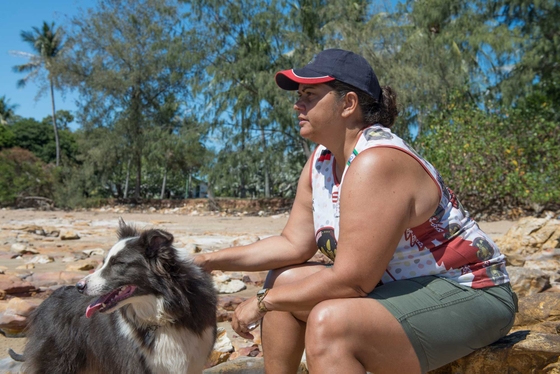
Looking after your emotional health in uncertain times
Blog: 30 April, 2020
It’s almost impossible to avoid hearing about the COVID-19 pandemic, which took over our screens, conversations, news feeds, and daily lives from mid-January 2020. The global sense of being ill-at-ease due to anxiety, fear and lack of certainty is palpable.
There’s no clear end. Who knows what will happen next?
People with chronic diseases, including heart and lung issues, diabetes, those who are immunocompromised, the elderly and those who are pregnant are considered especially vulnerable to the virus.
Their best protection against COVID-19 is to isolate, stay home and stay away to stay safe. Ultimately, this advice and those who follow it, will contribute to avoiding the potential for devastation that we see wreaking havoc in other countries.
Quarantine saves lives. However, there are other effects too.
Physical distancing, quarantine and lock down; taking these steps has helped to save lives. However, there are psychological impacts from these actions. People can be left feeling a range of emotions, some of which are new and, perhaps, uncomfortable.
At this time, it’s possible that you are feeling:
Vulnerable
Suddenly we’re faced with the need to place people who happen to have a heart condition or had a heart event in to yet another diagnostic category. Particularly for young people and for those whose health statuses may not be easily visible, and for people who are still coming to terms with their illness, this new label might feel like yet another stigma. It may also be another reason to feel scared, uncertain and “different” from others.
If you weren’t feeling it already, the thought that everyone and everything feels like a threat to my life will likely feature.
Fearful
A main feature of fear related to COVID-19 is being afraid of the unknown. Is that a fever coming on? What will happen if I catch it? Does my partner, neighbour, milk carton or doorhandle carry the virus? How long will the pandemic last? Are the guidelines going to change again tomorrow?
These valid questions and concerns are added on top of an already long list of uncertainties and traumatic experiences related to managing a heart condition; this can snowball into feelings of anxiety. We rely on predictability for our safety and our sanity, and without it, we feel extremely unsettled and turn to “what ifs” for answers in the hope that it brings us some sense of control.
Here are some tips to help manage uncertainty and increase your resilience through the COVID-19 pandemic
Choose choice
Focus on the choices you can make. Intentional choices keep you in tune with yourself, by asking yourself how you ‘feel’ about something, as well as enabling you to take action. This could include clothing choice, meal choice, or doing something mundane in a different way. If you feel that COVID-19 restrictions are impacting your ability to make choices, take control over the smaller things in life.
Take the time to figure out how the COVID-19 pandemic impacts you
We can be influenced by others’ reactions and personal circumstances. However, it’s important to reflect on your own situation. What does COVID-19 mean to you and what impact does it have on the way you conduct your life? Acknowledge your confusion, grief, sadness, injustice, fear and anger, and know that not knowing how you feel is ok too. Or, just embrace some silence while the world slows for a bit (introverts rejoice!). Whether that’s through journaling, learning about others’ experiences, alone time, or your usual ways of reflecting on things, understanding your own reactions will help you cope with uncertainty as well as further changes.
Know which coping strategies work for you, and stick to a consistent routine including exercise, good nutrition and adequate sleep
Other strategies could include virtual socialising, laughter, fresh air, creativity, home projects and giving your brain new experiences. Practicing mindfulness can help with relaxation and also reduces anxiety and worry associated with health and physical symptoms.
Buy what you need
Many people got caught up in panic buying. Maybe you did too. However, knowing that you have adequate supplies can help you to successfully cope with quarantine. Write a list of what you need (and want) for the week, and you decide how you want to get it. Calling upon others for a no-contact drop of supplies can feel anywhere from uplifting to demoralising, so decide how independent you want to be. You can minimise some of the stress by making online orders or taking up a shopping subscription service. Either way, plan for what you need and how you’d like it to get to you.
Stay connected though COVID-19
There are so many ways to connect, even in isolation. Make sure you reach out to loved ones, old friends, professionals or your online community. You can be open and honest when you talk with them; let them know what you are going through. Your connections may have had similar experiences, and you can share ideas and tips on how to manage the emotional impacts of COVID-19.
There are always options to seek professional help for extra support. Speak to your GP and specialist regarding telehealth options. You can also get help through the Beyond Blue Coronavirus Mental Wellbeing Support Service or through a referral to a Psychologist from your GP.
Lastly, know you’re not alone. The virus will subside, and life will return to a new normal.
You might also be interested in...

Clinical resources: Coronary heart disease and mental health
The prevalence of depression is high in patients with coronary heart disease (CHD).

Mental health and heart disease
Having a mental health condition can have a negative impact on your heart health and increase your risk of heart disease.

When the heart gets heavy: Emotional wellbeing and heart conditions
Emotional wellbeing is like having a garden, sometimes it grows green on its own, other times it needs watering, cutting back or fertilising.
Last updated07 March 2024